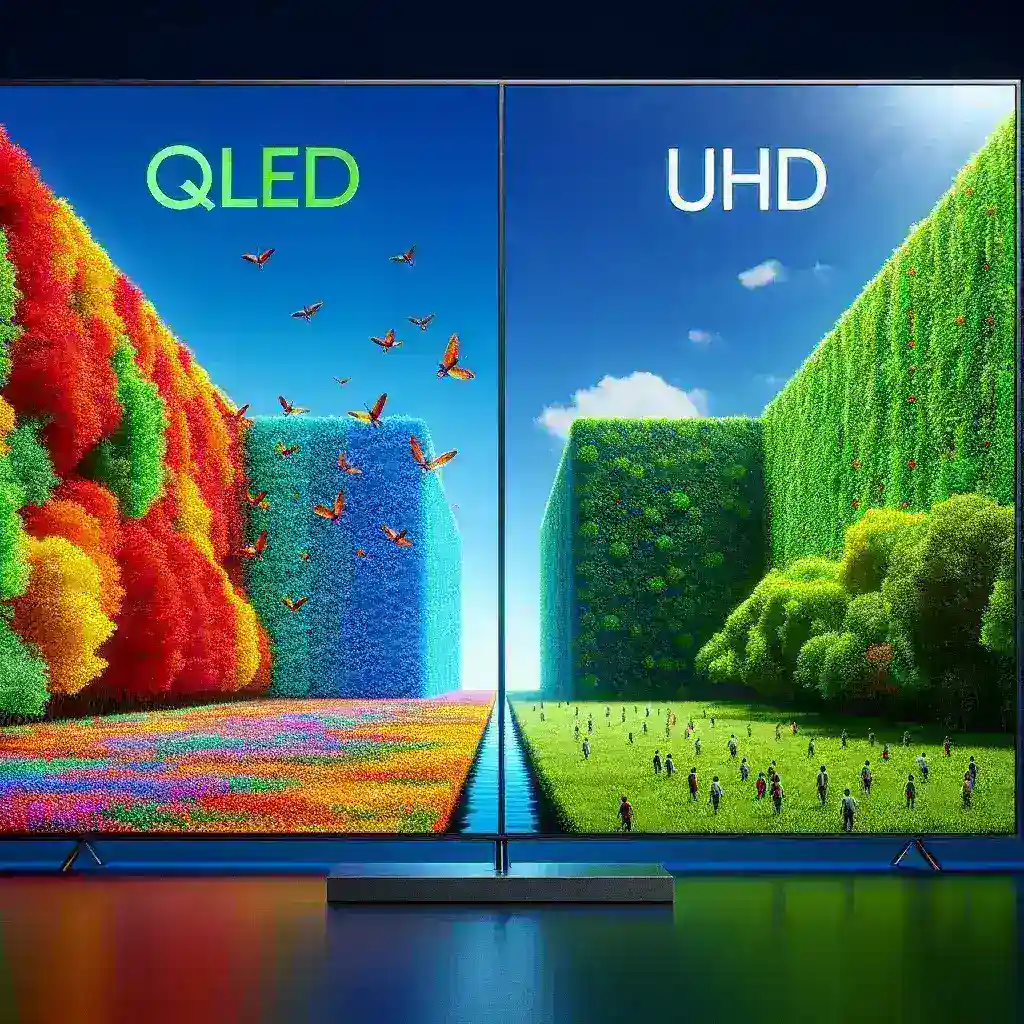Introduction to QLED and UHD
In today's fast-evolving technological landscape, the choices for television technology can be overwhelming. Among the top contenders are QLED and UHD. Both promise superior viewing experiences, but they achieve this in different ways. This article will help you understand the key differences and advantages of each technology, enabling you to make an informed decision.
What is QLED?
QLED, or Quantum Dot Light Emitting Diode, is a display technology that utilizes quantum dots to enhance color and brightness. Quantum dots are microscopic molecules that, when hit by light, emit their own differently colored light. This technology is primarily used in high-end TVs marketed by Samsung and other leading manufacturers.
Advantages of QLED
- High Brightness: QLED TVs are known for their exceptional brightness, making them ideal for rooms with a lot of ambient light.
- Superior Color Accuracy: Quantum dots enhance color accuracy, offering vibrant and lifelike images.
- Longevity: Quantum dots do not degrade over time, meaning the display won't lose its brightness or color accuracy.
Drawbacks of QLED
- Price: QLED TVs tend to be more expensive due to the advanced technology involved.
- Viewing Angles: The picture quality can degrade when viewed from wider angles.
What is UHD?
UHD, or Ultra High Definition, refers to a resolution of 3840 x 2160 pixels, which is four times the resolution of 1080p Full HD. UHD is a general term that encompasses various types of displays, including both LCD and OLED screens. UHD is all about pixel count, providing a crisper and more detailed image compared to lower resolutions.
Advantages of UHD
- Enhanced Detail: With a higher pixel count, UHD offers a more detailed and sharper image quality.
- Affordability: Over time, UHD TVs have become more affordable and accessible to a wider audience.
- Compatibility: Most modern streaming services and content providers support UHD resolution.
Drawbacks of UHD
- Content Availability: While growing, the amount of UHD content available is still limited compared to HD content.
- Bandwidth: Streaming UHD content requires a higher bandwidth, which might necessitate an internet upgrade.
QLED vs UHD: Which is Right for You?
Your choice between QLED and UHD largely depends on your specific needs and budget. If you're looking for the latest in color accuracy and brightness and are willing to invest a bit more, QLED might be the right choice for you. On the other hand, if you prioritize resolution and detail without breaking the bank, a UHD TV should serve you well.
Conclusion
Both QLED and UHD offer unique benefits that can significantly enhance your viewing experience. Understanding the nuances of each technology will empower you to choose a television that best fits your lifestyle and viewing preferences.

